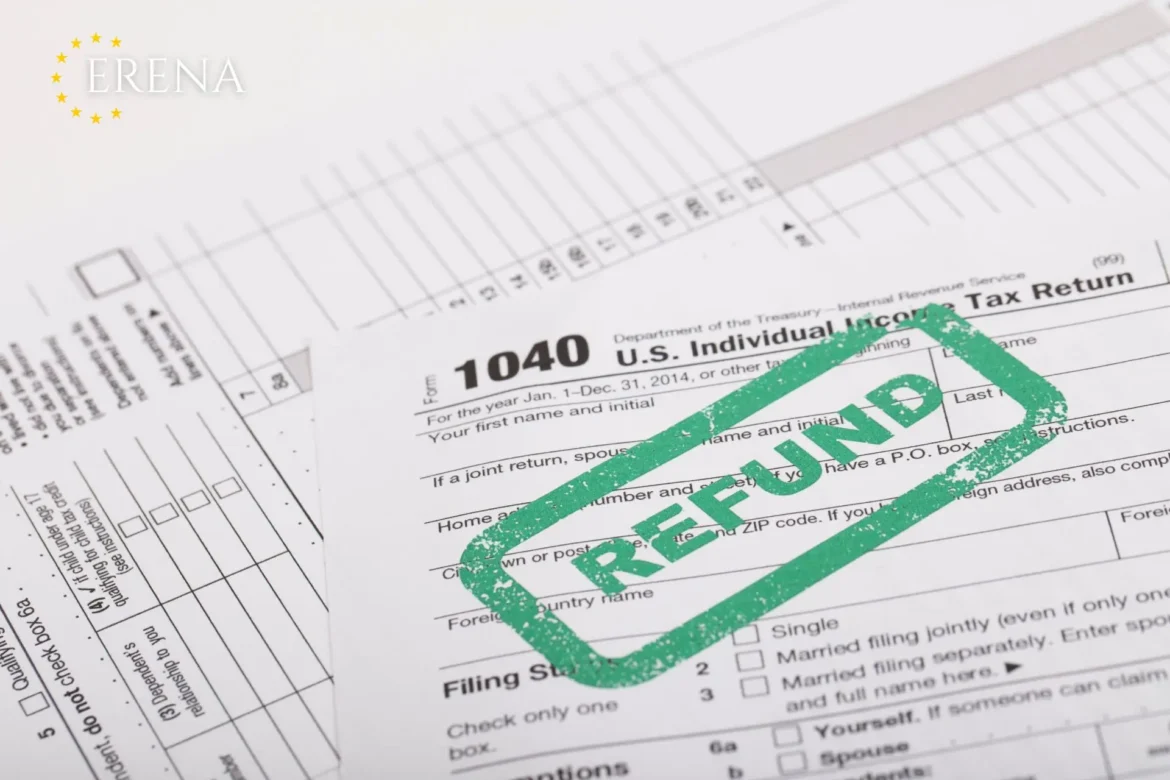Getting a tax refund is an important process for many workers and travelers in Europe. However, mistakes in filing tax returns can lead to delays, rejections, or even penalties. In this guide, we’ll explore the key aspects of tax refunds in Europe and provide practical tips to ensure a smooth process.
1. Prepare All Necessary Documents 📑
A successful tax refund starts with the correct and complete documentation. Missing or incorrect paperwork can result in rejections or delays.
Key documents you may need:
✔ Receipts, invoices, and bills – Proof of purchases and expenses.
✔ Tax residency certificate – Confirms your tax status in a specific country.
✔ Income certificate – In Germany, this is the Lohnsteuerbescheinigung; other countries have equivalent forms.
✔ Bank statements – To confirm transactions.
✔ Copy of passport or residence permit – Identity verification.
If any documents are missing, the tax office may request additional verification or deny the refund.
2. Carefully Fill Out Your Tax Return ✍
Errors in tax returns are a common reason for refund delays or rejections.
🚀 Key points to check:
🔹 Ensure personal details are correct (name, tax ID, address).
🔹 Report all sources of income – Omitting income can lead to fines.
🔹 Choose the correct filing status – For example, “single” vs. “married” affects tax amounts.
🔹 Accurately calculate tax deductions – Mistakes can cause processing delays.
Many European countries offer online tax filing systems, reducing the chances of errors and speeding up the process.
3. Meet the Tax Filing Deadlines ⏳
Each country in Europe has specific tax return deadlines. Missing them may result in penalties and tax refund denials.
📅 Tax return deadlines across Europe (2025):
- Germany – July 31 of the following year.
- France – Typically in May-June, depending on your region.
- Spain – June 30.
- Poland – April 30.
- Italy – September 30.
Tip: Don’t wait until the last minute! Submitting early helps avoid delays caused by processing backlogs.
4. Take Advantage of Tax Deductions and Credits 💰
Many European countries offer tax deductions and credits that can reduce taxable income and increase your refund.
🟢 Common tax deductions in Europe:
✔ Rent expenses (e.g., in Germany and France).
✔ Education and professional training courses.
✔ Medical expenses and health insurance premiums.
✔ Charitable donations.
✔ Commuting costs (if supported by documents).
⚠ Important! Each country has its own rules for deductions, so check which ones apply to you.
5. Check Double Taxation Agreements (DTAs) 🌍
If you worked in one European country but are a tax resident in another, check if the countries have a Double Taxation Agreement (DTA).
🔹 How does it work?
For example, if you worked in Germany but live in Poland, you may be eligible for a tax adjustment and partial refund.
💡 Countries with active DTAs include:
✅ Germany – France
✅ Spain – Italy
✅ Poland – Sweden
📌 Tip: Contact your country’s tax office to see how you can benefit from DTAs and avoid overpaying taxes.
6. Tax-Free Shopping: How to Get VAT Refunds? 🛍
If you live outside the EU and shop in Europe, you can claim a VAT refund through the Tax-Free Shopping system.
🔹 Steps to claim a VAT refund:
1️⃣ Shop at stores displaying the “Tax Free” sign.
2️⃣ Request a Tax-Free form at checkout.
3️⃣ Present your purchases, receipts, and form at customs for a stamp.
4️⃣ Get your refund at the airport or through a VAT refund service.
💶 VAT refund rates by country:
- Germany – 19%
- France – 20%
- Italy – 22%
- Spain – 21%
The more you spend, the more you can claim back!
7. What to Do If Your Tax Refund Is Delayed? ⚠
On average, tax refunds take 6 to 12 weeks to process, but sometimes they get delayed.
📢 If your refund hasn’t arrived, check:
✔ Have all required documents been submitted?
✔ Are there any errors in your tax return?
✔ Is the correct bank account provided?
🔹 How to speed up the process?
📌 Contact the tax office and request a status update.
📌 Submit a formal inquiry.
📌 If unresolved, seek help from a tax consultant.
Conclusion: How to Avoid Tax Refund Problems? ✅
🚀 To ensure a smooth and hassle-free tax refund:
🔹 Keep all relevant documents organized.
🔹 Carefully complete your tax return.
🔹 Meet filing deadlines.
🔹 Utilize tax deductions and credits.
🔹 Check for Double Taxation Agreements.
🔹 Use Tax-Free shopping to claim VAT refunds.
🔹 Follow up promptly on refund delays.
By following these steps, you can avoid problems and get your tax refund efficiently! 💸✔

